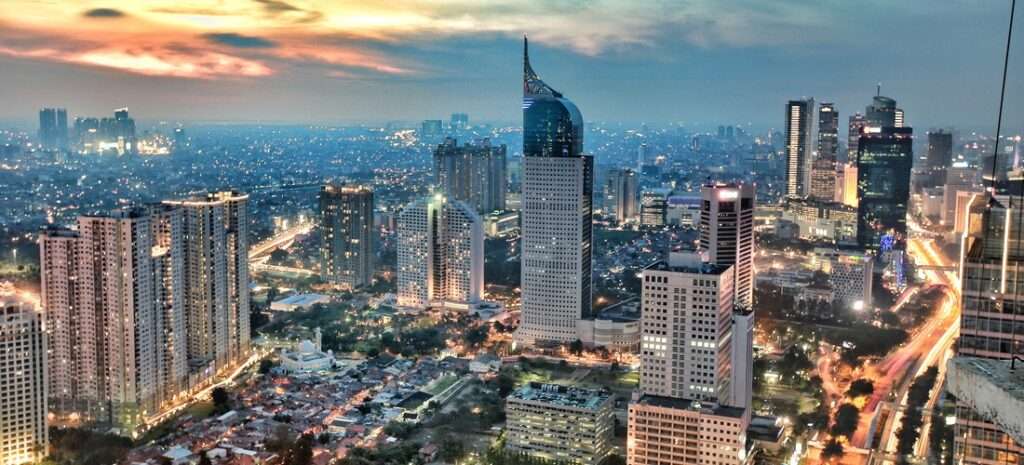
Every country in the world has a different level of quality of life. The quality of life which is present in a certain country provides evidence of the overall condition of the general population with regard to the nation’s:
- Health issue
- Socioeconomic well-being
- Overall gross domestic product (GDP)
According to the World Health Organisation (WHO), the quality of life of any country can be affected by such matters as:
- Local perception
- Cultural Value
- Beliefs
NOTE: Cost of living is also another factor that affects quality of life because it will determine how much disposable income the average person in a country will have.
The primary set of rankings that determines the level of quality of life in a certain country is the Human Development Index (HDI). The HDI was created and is monitored by the United Nations. According to the latest HDI rankings, quality of life in Indonesia was ranked joint-116th in the world with a score of 0.694 out of a possible 1. This ranking and score also meant that Indonesia was ranked as a country with medium human development. Among the countries which have similar levels of quality of life to that of Indonesia are:
- Egypt
- Vietnam
- South Africa
- Bolivia
Although the Quality of Living City Ranking which was created by Mercer serves to measure the quality of life in cities rather than countries, Indonesia’s capital city of Jakarta was one of the cities mentioned in the rankings. It ranked 142nd out of 231 cities around the world. Other cities which have similar levels of quality of life to that of Jakarta are:
- Nanjing, China
- Hyderabad, India
- Gaborone, Botswana
- Belgrade, Serbia
Areas of Quality of Life in Indonesia Which Ranks Favorably
1. Health services quality
One of the areas of quality of life in Indonesia which has made obvious improvements can be seen in the health services’ quality in the country. Indonesia has a national health scheme which is referred to as JKN. JKN was specifically designed to cater to the country’s population of 255 million in order to raise the overall health standards of Indonesia. The government of Indonesia has also been working on improving the general health of poorer people in the country through the use of Universal Health Coverage (UHC) Policies.
2. Food security & economic conditions
Food security and economic condition are two other areas of life quality in which Indonesia ranks highly. Food manufacturing industries and processing factories have been established throughout the country to increase the country’s food supply. In terms of the country’s economic situation, job security has improved while the wealth creation parity gap has shrunk.
3. Economic growth
The country has also experienced consistent economic growth. The rise in the country’s economic might bodes well for the country’s future because it allows the government to devise more comprehensive plans to improve Indonesia’s economic situation.

What languages are spoken in Indonesia?
Indonesia is also incredibly diverse and there are over 700 languages spoken daily across the country, including hundreds of rare indigenous languages.
The national language is Indonesian. However, Javanese is the most widely-spoken language, with over 40% of people speaking it daily.
English and Dutch are also widely spoken, especially in the major metropolitan centres, but if you plan on venturing further afield you may want to take an Indonesian and a Javanese phrasebook with you.
Read More: Indonesia Company Registration Made Simple: Your Roadmap To Prosperity
Is living in Indonesia dangerous?
The Economist’s 2021 Safe Cities Index puts Jakarta near the bottom of the list, with a safety score of 56.4 out of 100. Jakarta scored low for every metric, but especially for personal safety and digital security.
Life in Indonesia comes with a high risk of earthquakes, road traffic accidents and petty crime – however, one of the biggest threats in Indonesia is terrorism.
Attacks on political targets in Jakarta are still occurring and, tragically, westerners are a particularly popular target for insurgents. However, these events are mostly random occurrences and, were they to stop occurring, Jakarta and Indonesia would be considered fairly safe overall.
What is the average salary in Indonesia?
The good news for expats is it is relatively easy to enjoy a great standard of living in Indonesia.
The average salary is around $28,000/£21,000, although expats working in Jakarta and other major cities can expect to earn much more – the average salary for expats is around $120,000/£90,000. That can go exceptionally far when you consider Jakarta ranks 404th in the cost of living index, making it one of the cheapest major cities worldwide.
But you may not even need to find employment in Indonesia. If you’re lucky enough to have a permanent contract from a company who don’t mind you working remotely, the beaches of Bali could be your new office – and you’ll still be eligible to apply for a working visa in Indonesia.
Areas of Quality of Life in Indonesia Which Ranks Unfavorably
1. Quality of education
Although Indonesia has been consistently reducing the overall illiteracy level of the country, the quality of education, especially that of tertiary education in Indonesia, is relatively low. Many universities across the country do not provide an adequate level of educational content. Thus, many students in Indonesia’s universities are unable to attain superior academic results.
Furthermore, many doctorates that have been awarded by Indonesian universities are believed to have been tarnished by an extremely high level of plagiarism among graduates.
2. Natural disasters
Indonesia is also vulnerable to natural disasters such as earthquakes and volcanic eruptions. Such disasters go some way to reducing the quality of life in Indonesia as it affects the country’s ability to develop its infrastructure.
Read More: How To Start A Digital Agency In Bali: A Comprehensive Guide
How the Indonesian Government Attempts to Improve the Overall Quality of Life in Indonesia
The Indonesian government has attempted to improve quality of life in Indonesia through participation in many international trade and business organisations. The government has been working to stabilise the inflation rates as well as increase the size of the job market. The Indonesia government is also committed to growing the:
- Country’s economy
- Improving health facilities
- Raising the standard of education
he government has also attempted to reduce the cost of access to adequate health and education services, which would in turn reduce the cost of living in the country. The Indonesian government has always prioritised the creation of a peaceful and stable political system to ensure that regular operations are maintained at all times.
Evidence of Improvements in Quality of Life in Indonesia
The improvements in quality of life in Indonesia can be proven in several ways.
Increasing GDP per capita
One of the most obvious proofs of quality-of-life improvement in Indonesia is its increasing GDP per capita. The country has had a steadily rising GDP per capita with a much more impressive US$3,932 today. The country’s government has made robust investments in many sectors.
As a result, the country’s economy grew by 5.2% in 2018. The Indonesian government has also done much to raise the standards of infrastructural development in the country. It has also created numerous social assistance programs to improve both the educational sector and the health sector.
NOTE: Indonesia has also been gradually reducing the gender gap which has sometimes prevented women from having equal opportunities across the country.
How to get a visa to live and work in Indonesia
Most people can enter Indonesia visa-free and apply for a visa on arrival. This visa can be extended once for a total of 60 days. However, when it comes to getting a longer-term visa, things get a little complicated.
Those intending to work in Indonesia will need to apply for one of two types of visa:
- The Visa Izin Tinggal Terbatas (VITAS). You will need to apply in advance to the Directorate General of Immigration in Jakarta, providing a passport valid for at least 18 months. You’ll also need to provide details of a sponsor (either your employer or an Indonesian citizen who can vouch for you), a passport photo, complete all relevant paperwork, and pay the visa fee of $205.
- Next, you’ll need a Izin Tinggal Terbatas (ITAS), a visa for limited stays. It is issued through local immigration offices to individuals who already have the limited-stay Visa Izin Tinggal Terbatas (VITAS, above).
- Once you have held an ITAS for three years, you can then apply for a Kartu Izin Tinggal Tetap (KITAP), which entitles you to permanent residence in Indonesia.
Applying for residency in Indonesia can be complex, which is why it’s usually best to work with a local immigration lawyer – especially if you also intend to start a business, purchase a property or invest in a company when you move.
How to open a bank account in Indonesia
To be eligible to open a bank account when living in Indonesia, you must first have your ITAS. You will then need to visit your bank’s branch with a copy of your passport and any immigration documents. You may also need a copy of a letter from your employer as proof of your employment and perhaps even a reference letter from your boss. Some banks will even ask for copies of your most recent payslips.
It’s also common for banks to request a minimum deposit. This is usually around $350/£250 but can go up to $35,000/£25,000 for high-value accounts.
Conclusion
As one of the largest countries in the world, quality of life in Indonesia is particularly important issue. This is because a low quality of life there would cause far more people to suffer than would be the case in smaller countries. Among the chief problems that inhibit quality of life in Indonesia are those of natural disasters. Due to its location, Indonesia is often afflicted by natural disasters such as:
- Volcanic eruptions
- Tsunamis
- Earthquakes
These disasters significantly reduce the quality of life of the country’s citizens. Other challenges include access to adequate:
- Health services
- Unpredictable weather conditions
- Low quality of education at higher learning institutions.
Nevertheless, the government has been working to ensure that such issues are handled appropriately so as to improve the general quality of life in Indonesia.
Quality of Life in Indonesia FAQS
LIVE & WORK IN INDONESIA TODAY
Come down to our office or reach out to us virtually for company incorporation, and other corporate services today.

